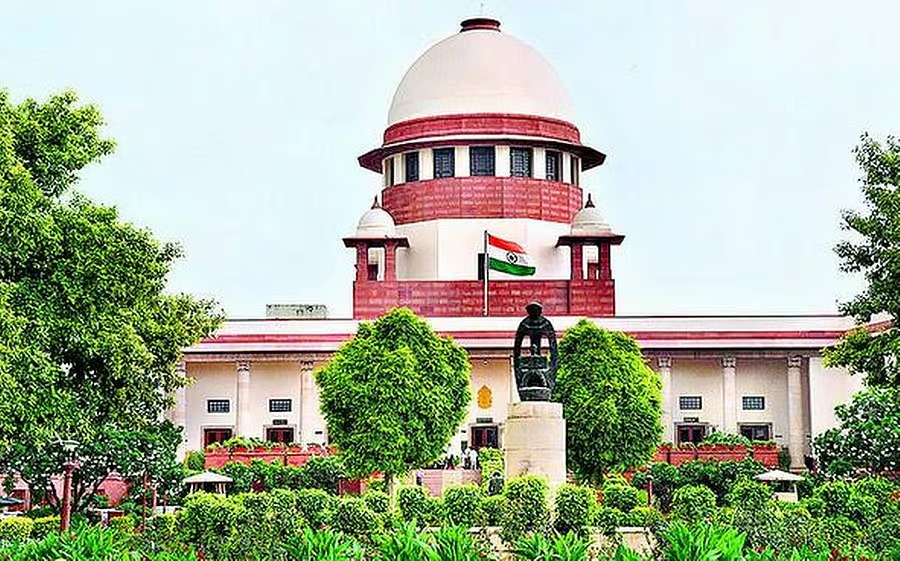@JUDGMENTTAG-ORDER
1. Calling in question the legal propriety of the order dated 21.1.2010 passed by the learned Single Judge in W.P.(C) No. 22553/2005 the present intra-Court appeal has been preferred.
2. Shorn of unnecessary details the facts which are essential to be stated for adjudication of this appeal are that the Appellant - workman was appointed as a daily wager in the erstwhile Delhi Vidyut Board on 7.9.1992 and worked on the said basis upto 30.4.1995. His services were terminated on 30.4.1995 by the Board. Being dissatisfied with the order of the termination, the Appellant raised an industrial dispute and eventually the matter was referred to the Labour Court. The Labour Court by the award dated 25.9.2004 came to hold that he was not entitled for regularization. However, the Labour Court directed if the Appellant applies for serving as a daily wager employee in writing, he should be given priority for working in daily wager capacity. The Appellant inspite of filing an application to be engaged as a daily wager, challenged the award by way of the writ petition.
3. The learned Single Judge took note of the conclusions arrived at by the Labour Court that the Appellant - workman was a daily wager. The stand of the workman that he was not a daily wager was repelled. The learned Single Judge referred to the decision in State of Himachal Pradesh and Anr. v. Ravinder Singh, Civil Appeal No. 2224/2008 (arising out of SLP(C) No. 3347/2006)decided on 28.3.2008 wherein it has been held that unless the appointment is in terms of the relevant rules and after a proper competition amongst qualified persons, the same would not confer any right on the appointee. There is material on record that the Appellant was a daily wager and, hence, he had no right to be regularized. The Constitution Bench in the case of
43. Thus, it is clear that adherence to the rule of equality in public employment is a basic feature of our Constitution and since the rule of law is the core of our Constitution, a court would certainly be disabled from passing an order upholding a violation of Article 14 or in ordering the overlooking of the need to comply with the requirements of Article 14 read with Article 16 of the Constitution. Therefore, consistent with the scheme for public employment, this Court while laying down the law, has necessarily to hold that unless the appointment is in terms of the relevant rules and after a proper competition among qualified persons, the same would not confer any right on the appointee. If it is a contractual appointment, the appointment comes to an end at the end of the contract, if it were an engagement or appointment on daily wages or casual basis, the same would come to an end when it is discontinued. Similarly, a temporary employee could not claim to be made permanent on the expiry of his term of appointment. It has also to be clarified that merely because a temporary employee or a casual wage worker is continued for a time beyond the term of his appointment, he would not be entitled to be absorbed in regular service or made permanent, merely on the strength of such continuance, if the original appointment was not made by following a due process of selection as envisaged by the relevant rules. It is not open to the court to prevent regular recruitment at the instance of temporary employees whose period of employment has come to an end or of ad hoc employees who by the very nature of their appointment, do not acquire any right. The High Courts acting under Article 226 of the Constitution, should not ordinarily issue directions for absorption, regularization, or permanent continuance unless the recruitment itself was made regularly and in terms of the constitutional scheme. Merely because an employee had continued under cover of an order of the court, which we have described as "litigious employment" in the earlier part of the judgment, he would not be entitled to any right to be absorbed or made permanent in the service. In fact, in such cases, the High Court may not be justified in issuing interim directions, since, after all, if ultimately the employee approaching it is found entitled to relief, it may be possible for it to mould the relief in such a manner that ultimately no prejudice will be caused to him, whereas an interim direction to continue his employment would hold up the regular procedure for selection or impose on the State the burden of paying an employee who is really not required. The courts must be careful in ensuring that they do not interfere unduly with the economic arrangement of its affairs by the State or its instrumentalities or lend themselves the instruments to facilitate the bypassing of the constitutional and statutory mandates.
4. In view of the aforesaid, we do not find any error in the order of the learned Single Judge and accordingly the same stands dismissed without any order as to costs.

